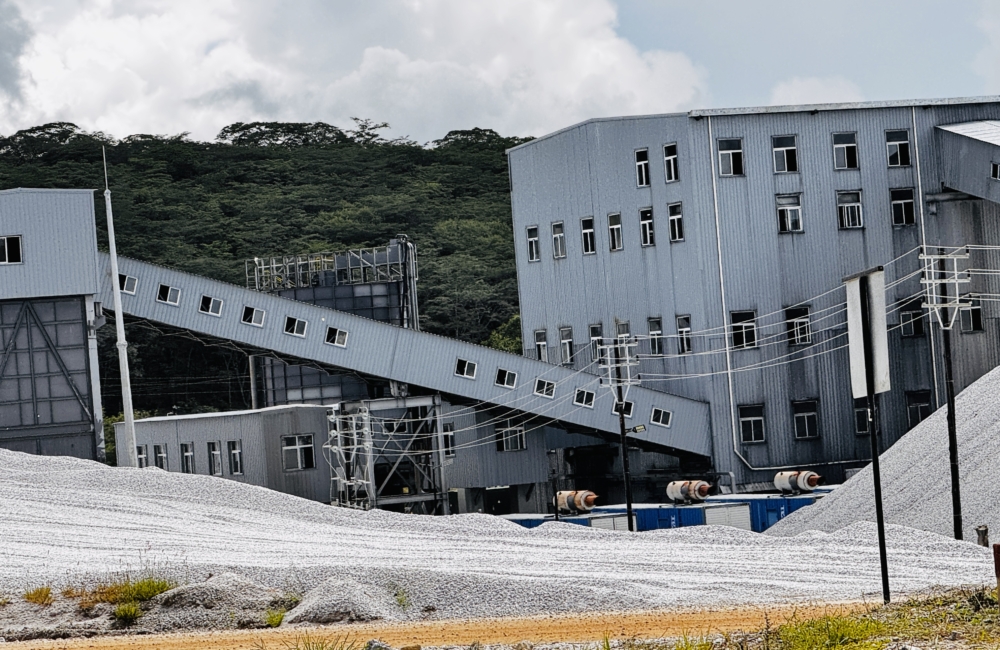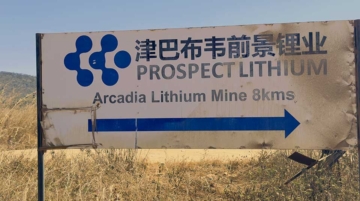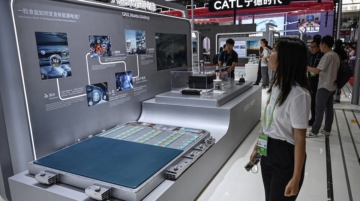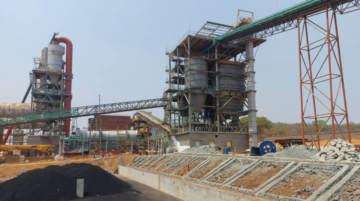
A Chinese mining and materials giant, Sinomine Resource Group, is ramping up its dominance in the critical minerals sector, with a $400 million investment in Zimbabwe for the construction of the world’s second cesium smelting plant.
The move positions Sinomine as the operator of the only two active cesium facilities globally, an outcome likely to intensify scrutiny over China’s tightening control of supply chains for high-tech strategic resources.
Cesium, known as a rare and highly reactive alkali metal, is a key component in technologies such as GPS navigation, atomic clocks, oil and gas drilling, telecommunications, and aerospace.
Made largely from the mineral pollucite found in lithium deposits, cesium is considered by the United States, Canada, and other governments in industrial countries to be a critical mineral because of its scarce global supply and strategic uses.
The world’s only other operating cesium mine, the Tanco mine in Manitoba, Canada, is also owned by Sinomine. While the site could, in theory, offer the United States and other G7 governments a potential alternative supply of the critical mineral, most of its output is still shipped to China for processing.
Now, however, with the addition of a processing facility at Bikita Minerals in southeastern Zimbabwe, Sinomine will control both global smelting operations for cesium, reinforcing China’s central role in a supply chain that G7 countries have so far failed to diversify.
Governments in industrial countries, namely the United States, have recognized the risks that arise when one country, particularly one that is a geopolitical rival, thoroughly dominates crucial mineral supply chains, including lithium, rare earths, and now cesium. While that may be true, these governments have done very little to challenge China’s supremacy in this field, spending very little to build alternative supply chains at a scale comparable to China’s.
This asymmetry exposes dangerous vulnerabilities for China’s competitors, whose access to these critical minerals is essential for their economic advancement. More and more, though, critical mineral supply chains are being weaponized in the global trade war.
And the Bikita cesium provides an interesting case study.
For years, Japan was a regular buyer of cesium-bearing pollucite from the mine, but it suddenly encountered difficulties accessing the facility once Sinomine took over operations in 2022, according to a Zimbabwean government official familiar with the situation.
He noted that attempts by Japanese officials to engage Zimbabwe’s Ministry of Mines and Mining Development to restore exports have been unsuccessful. Exports to Japan have ceased, the official confirmed.
Why Is This Important?
The centrality of cesium production and processing capacity in Chinese control has outsized implications on a global scale. Russia’s occupation of Ukraine’s cesium-rich regions further underscores how precarious the global cesium supply can be.
Unlike many other commodities, there is no public spot market for cesium, and its price is essentially opaque. Sinomine and, with it, China enjoys an outsized degree of control over the mining and refining of this key and unhedgeable supply.
This development further complicates what has become a source of growing anxiety in Washington, Ottawa, and Tokyo over the growing power of Beijing in critical minerals supply chains that are vital to national security, industrial policy, and transitioning to clean energy.







